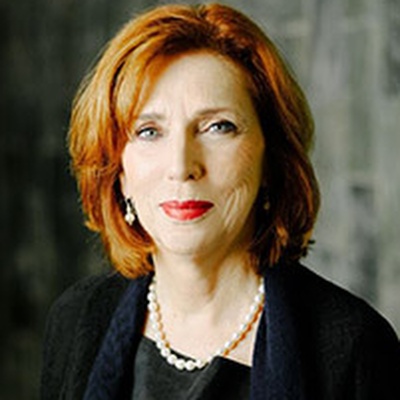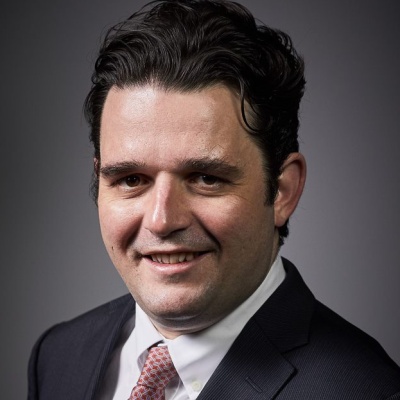Higher education and Covid-19 in Australia: What does the pandemic mean for a well-run sector which had one third international students in 2019?
- Margaret Gardner, Monash University
- Laurie Pearcey, University of New South Wales
- Fazal Rizvi, University of Melbourne
Event Materials
This event is now archived and we are pleased to provide the following event media and assets, along with the original event overview.
The Covid-19 pandemic has posed immense challenges for higher education everywhere: providing for the health and safety of students and staff, developing online education and devising new mixed modes of delivery, maintaining research and sustaining institutional income amid enrolment fluctuations. The pandemic has created special problems for higher education systems highly engaged in international relations, especially those financially and educationally dependent on high volume international student mobility. Australian higher education is well organised and flexible, with a capacity to scale up effectively and work around the world, but prior to the pandemic was very dependent on international student revenues.
In early 2020 Australian higher education was poised to overtake the UK as second country in the world after the United States as a provider of international education. In 2018 Australian institutions had enrolled 479,987 international students (30.7 per cent of all students), mostly from China, India, Nepal and Southeast Asia, with more a quarter of their total income from international student tuition fees. No less than 58.9 per cent of taught Masters students in 2018 were international. Among doctoral research students 36.8 per cent were from abroad. Then Covid-19 hit and incoming flights were stopped.
International student fees at profit-taking levels have underpinned the teaching of domestic students at scale, buildings and facilities and financed much research. The research performance of Australian universities has sustained their leap up the league tables. In the 2020 Shanghai Academic Ranking Australia had 23 universities in the world top 500, including seven in the top 100, led by Melbourne at 35: remarkable for a nation of 26 million people. The rankings of Australian universities sustain their reputation among international student families. Yet the achievement was always vulnerable: compared to most other research-intensive countries, science in Australian higher education has been less dependent on the public funding that is the normal mainstay of research infrastructure and more dependent on university managed commercial income.
The pandemic in Australia is less severe than in the United States and much of Europe but subject to continuing outbreaks, and the nation protects itself by restricting and regulating incoming traffic. There is no prospect of face to face international education returning to pre-Covid volumes this side of a vaccine. All Australian universities face exceptionally harsh income projections, which is forcing large scale restructuring and threatening industrial relations turmoil. The Australian government has sustained funding for domestic students, while requiring the universities to kick-start a new programme of six-month courses in vocational areas to soak up unemployment. It has been notably unsympathetic to requests for compensation for lost international student income, despite the fact that international students have been financing national public goods such as research. Media commentators tell the universities their business models are at fault. This might be the government view also.
Yet the business model followed by the universities was developed in government and fostered by visa policy and the promotion of education exports in Australian consulates across Asia. For thirty years successive Australian governments encouraged higher education institutions to build international education. For government the education export sector has been a fiscal windfall, allowing Treasury to drop public funding of universities well below the OECD country average as a proportion of GDP, while building national soft power in the Asia-Pacific region. All of this, including Australian relations in the region and especially with China (where geopolitical tensions are rising) is in the melting pot.
Resources are crucially important. Change is inevitable. How are Australian universities coping with their immense challenges? Will Australia restore its role in international education? Will Australia become more engaged in its region or less? What will be the future Australian model and mission in higher education?
In the CGHE webinar these issues will be explored by speakers from three leading Australian research universities, all notable for their level of engagement in international education.
The Covid-19 pandemic has posed immense challenges for higher education everywhere: providing for the health and safety of students and staff, developing online education and devising new mixed modes of delivery, maintaining research and sustaining institutional income amid enrolment fluctuations. The pandemic has created special problems for higher education systems highly engaged in international relations, especially those financially and educationally dependent on high volume international student mobility. Australian higher education is well organised and flexible, with a capacity to scale up effectively and work around the world, but prior to the pandemic was very dependent on international student revenues.
In early 2020 Australian higher education was poised to overtake the UK as second country in the world after the United States as a provider of international education. In 2018 Australian institutions had enrolled 479,987 international students (30.7 per cent of all students), mostly from China, India, Nepal and Southeast Asia, with more a quarter of their total income from international student tuition fees. No less than 58.9 per cent of taught Masters students in 2018 were international. Among doctoral research students 36.8 per cent were from abroad. Then Covid-19 hit and incoming flights were stopped.
International student fees at profit-taking levels have underpinned the teaching of domestic students at scale, buildings and facilities and financed much research. The research performance of Australian universities has sustained their leap up the league tables. In the 2020 Shanghai Academic Ranking Australia had 23 universities in the world top 500, including seven in the top 100, led by Melbourne at 35: remarkable for a nation of 26 million people. The rankings of Australian universities sustain their reputation among international student families. Yet the achievement was always vulnerable: compared to most other research-intensive countries, science in Australian higher education has been less dependent on the public funding that is the normal mainstay of research infrastructure and more dependent on university managed commercial income.
The pandemic in Australia is less severe than in the United States and much of Europe but subject to continuing outbreaks, and the nation protects itself by restricting and regulating incoming traffic. There is no prospect of face to face international education returning to pre-Covid volumes this side of a vaccine. All Australian universities face exceptionally harsh income projections, which is forcing large scale restructuring and threatening industrial relations turmoil. The Australian government has sustained funding for domestic students, while requiring the universities to kick-start a new programme of six-month courses in vocational areas to soak up unemployment. It has been notably unsympathetic to requests for compensation for lost international student income, despite the fact that international students have been financing national public goods such as research. Media commentators tell the universities their business models are at fault. This might be the government view also.
Yet the business model followed by the universities was developed in government and fostered by visa policy and the promotion of education exports in Australian consulates across Asia. For thirty years successive Australian governments encouraged higher education institutions to build international education. For government the education export sector has been a fiscal windfall, allowing Treasury to drop public funding of universities well below the OECD country average as a proportion of GDP, while building national soft power in the Asia-Pacific region. All of this, including Australian relations in the region and especially with China (where geopolitical tensions are rising) is in the melting pot.
Resources are crucially important. Change is inevitable. How are Australian universities coping with their immense challenges? Will Australia restore its role in international education? Will Australia become more engaged in its region or less? What will be the future Australian model and mission in higher education?
In the CGHE webinar these issues will be explored by speakers from three leading Australian research universities, all notable for their level of engagement in international education.



